Interview with Molly Kendall, Coop Federation
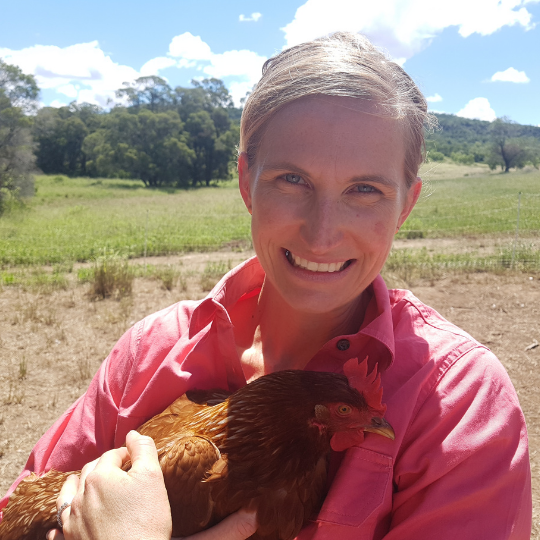
“Sorry about the rooster in the background” Zoe chimes into our Zoom call from her parent’s farmhouse on the Darling Downs, Queensland. Zoe has taken time from her busy life as a new Mum, full time vet and co-operator, to meet with The Co-op Federation. Zoe is the force behind the creation of the Free-Range Family Co-op which is devoted to the ethical production of meat and eggs. It is owned by the farmers and sells directly to consumers.
Thanks for your time, Zoe. Can you tell us a little bit about your background and why you were inspired to form the co-op?
I grew up on a sheep station in south-west Queensland and I always assumed that animal welfare was high. Then during my veterinary training in 2006-2010 I witnessed very intensive farming. I felt sorry for the animals, so I wanted to support farmers to grow their animals in a way that is in harmony with the animal’s natural behaviour, healthier to eat and for the environment.
These farmers would often tell me they wanted to improve things on their farms and implement better farming techniques, but they just couldn’t afford it. For example, a dairy farmer wants to plant trees to provide shelter for calving cows, but the farmer is just constantly battling, always time poor and not even making ends meet due to ridiculously low market prices.
The idea of the co-op is to connect consumers with where their food comes from and get more money back into the farms to support the farmers implement best farming practices. The co-op doesn’t just support better animal welfare practices but also environmental practices, like regenerative farming. Our farmers share their knowledge and work together, and the co-op sells directly to consumers. Selling paddock to plate is such a high workload so there’s tons to be gained from sharing knowledge and workload.
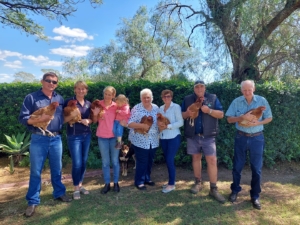
A collection of the co-op’s farmers – Beef graziers, sheep graziers, poultry farmers plus Zoe and her daughter.
When did you first encounter a co-op structure?
I was actually in Maleny for a friend’s wedding, and I’d been talking to friends about my dream of starting the paddock to plate business where farmers work together, then I walk into to the food co-op there, and I can see everyone is volunteering and I think “this is really great, they’re all pitching in supporting each other”.
Why is the co-op structure particularly important to your business?
The co-op structure gives a foundation for multiple owners, so you get personal investment from the farmers but it also stays true to the mission because you have a disclosure statement to make sure everyone is on the same page about what your purpose is.
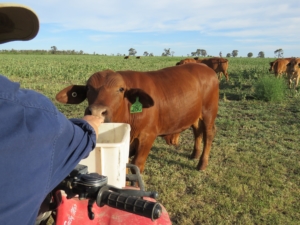
Why is the co-op structure particularly important to your business?
The co-op structure gives a foundation for multiple owners, so you get personal investment from the farmers but it also stays true to the mission because you have a disclosure statement to make sure everyone is on the same page about what your purpose is.
How did you form the co-op?
I came across the Farming Together grant funding in Country Life newspaper. I applied for the funding and got it! Then I went about searching for the farmers who I knew valued high animal welfare. I knew a few some of the perfect farmers right away and found others scouting around farmer’s markets and word of mouth.
How did COVID affect the co-op?
During COVID there wasn’t any food on supermarket shelves and people started to ask “where does my food come from?” Suddenly, home delivery demand went up and we had to pay somebody to do deliveries. We increased our volumes and changed our packing methods; we delegated a lot of jobs and that connection between farmers and customers got stronger. COVID was an incredibly tough time and we needed to make sure all our members were protected (especially those with vulnerable family members). However, on the upside, it gave us an opportunity to connect with consumers and tell our story. It’s also proved to us that we have the capacity to grow quickly and now we’re going to try and grow again!
Resilience is probably the theme of our co-op because as a farmer, you’ve got to be resilient to deal with all the variables including weather, animal health and market prices. So naturally we are primed to be resilient.
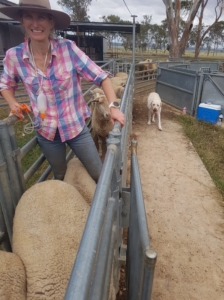
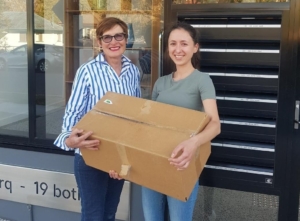
Zoe vaccinates sheep Farmer Pru making a delivery
What is one of the biggest lessons your co-operative experience has taught you personally?
I have the tendency to push myself too much, so I hope I’m now learning to pace myself.
We had a general meeting earlier in the year and all the farmers spoke about how involvement with the co-op has helped their business and that was refreshing for me to hear.
I would say I’ve learned that it is important to stop sometimes and celebrate your small achievements because it uplifts everyone, especially the members of a co-op.
